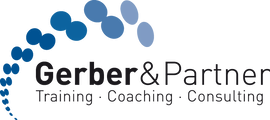Aggregate (GROUP BY) Functions
This document describes details about the supported aggregate functions in TiDB.
Aggregate (GROUP BY) function descriptions
This section describes the supported MySQL group (aggregate) functions in TiDB.
| Name | Description |
|---|---|
COUNT() |
Return a count of the number of rows returned |
COUNT(DISTINCT) |
Return the count of a number of different values |
SUM() |
Return the sum |
AVG() |
Return the average value of the argument |
MAX() |
Return the maximum value |
MIN() |
Return the minimum value |
GROUP_CONCAT() |
Return a concatenated string |
- Unless otherwise stated, group functions ignore
NULLvalues. - If you use a group function in a statement containing no
GROUP BYclause, it is equivalent to grouping on all rows. For more information see TiDB handling of GROUP BY.
GROUP BY modifiers
TiDB dose not support any GROUP BY modifiers currently. We’ll do it in the future. For more information, see #4250.
TiDB handling of GROUP BY
TiDB performs equivalent to MySQL with sql mode ONLY_FULL_GROUP_BY being disabled: permits the SELECT list, HAVING condition, or ORDER BY list to refer to non-aggregated columns even if the columns are not functionally dependent on GROUP BY columns.
For example, this query is illegal in MySQL 5.7.5 with ONLY_FULL_GROUP_BY enabled because the non-aggregated column “b” in the SELECT list does not appear in the GROUP BY:
drop table if exists t;
create table t(a bigint, b bigint, c bigint);
insert into t values(1, 2, 3), (2, 2, 3), (3, 2, 3);
select a, b, sum(c) from t group by a;The preceding query is legal in TiDB. TiDB does not support SQL mode ONLY_FULL_GROUP_BY currently. We’ll do it in the future. For more inmormation, see #4248.
Suppose that we execute the following query, expecting the results to be ordered by “c”:
drop table if exists t;
create table t(a bigint, b bigint, c bigint);
insert into t values(1, 2, 1), (1, 2, 2), (1, 3, 1), (1, 3, 2);
select distinct a, b from t order by c;To order the result, duplicates must be eliminated first. But to do so, which row should we keep? This choice influences the retained value of “c”, which in turn influences ordering and makes it arbitrary as well.
In MySQL, a query that has DISTINCT and ORDER BY is rejected as invalid if any ORDER BY expression does not satisfy at least one of these conditions:
- The expression is equal to one in the SELECT list
- All columns referenced by the expression and belonging to the query’s selected tables are elements of the SELECT list
But in TiDB, the above query is legal, for more information see #4254.
Another TiDB extension to standard SQL permits references in the HAVING clause to aliased expressions in the SELECT list. For example, the following query returns “name” values that occur only once in table “orders”:
select name, count(name) from orders
group by name
having count(name) = 1;The TiDB extension permits the use of an alias in the HAVING clause for the aggregated column:
select name, count(name) as c from orders
group by name
having c = 1;Standard SQL permits only column expressions in GROUP BY clauses, so a statement such as this is invalid because “FLOOR(value/100)” is a noncolumn expression:
select id, floor(value/100)
from tbl_name
group by id, floor(value/100);TiDB extends standard SQL to permit noncolumn expressions in GROUP BY clauses and considers the preceding statement valid.
Standard SQL also does not permit aliases in GROUP BY clauses. TiDB extends standard SQL to permit aliases, so another way to write the query is as follows:
select id, floor(value/100) as val
from tbl_name
group by id, val;Detection of functional dependence
TiDB does not support SQL mode ONLY_FULL_GROUP_BY and detection of functional dependence. We’ll do it in the future. For more information, see #4248.
